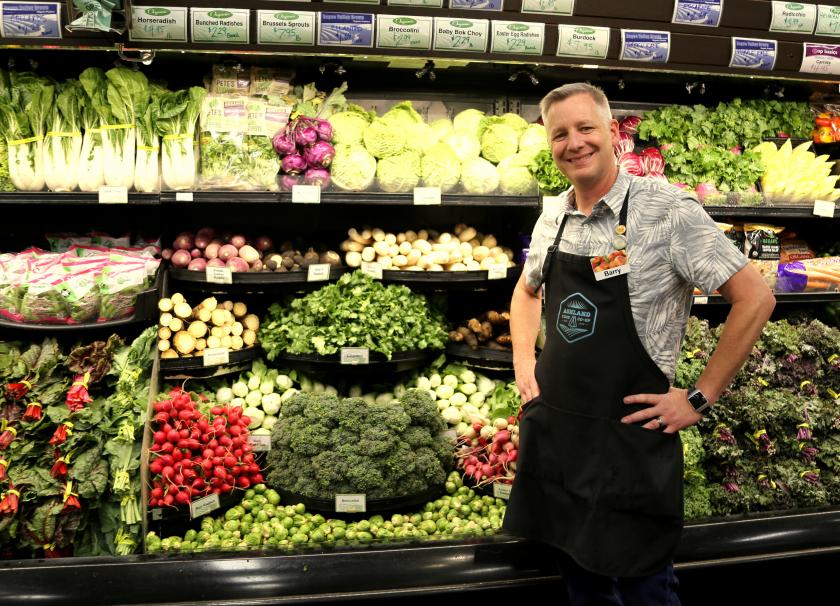
The Co-op is Certified Organic! What does that mean?
By Barry Haynes, Store Manager
Did you know that the Ashland Food Co-op is the only Certified Organic Retailer in southern Oregon. Well, that’s great! But what does that actually mean?
Though it sounds like it implies that all of the products we offer are certified organic, in actuality, it’s more about ensuring that the integrity of our certified organic products is maintained from the moment it enters our doors to the moment it leaves. In other words, you can be assured that the organic coffee you bought has stayed clean and clear of non-organic ingredients or contaminants during its stay at the Co-op. “Organic to the last drop!”
As a retailer, the Co-op is not required but we choose to be inspected by a USDA accredited, third party certifier every year.
We do this to verify that we are in compliance with the USDA’s National Organic Program and maintain our Organic Certification. Our third party certifier, Oregon Tilth, has been an integral part of the organic movement for forty years and does much more than inspection and certification. Tilth provides resources for farmers interested in switching to organic production, environmental conservation on the farm, farm viability and even a farmer mentorship program. It also publishes “In Good Tilth”, a seasonal magazine that tells positive stories about the organic trade. Pick up a copy at the Co-op or read it online at tilth.org.
During our annual inspection, we are required to provide organic certificates for all of the organic products we offer in every department of our Co-op. We also have to demonstrate that we have procedures and training in place to ensure that there is no commingling of organic and non organic products during receiving, storage, processing and merchandising. For instance, we would never display non organic produce above organic produce in our wet vegetable displays.
Any water dripping from non organic produce could contaminate the organic produce below. Another example would be in our Meat and Seafood department, where we cut and package all of our organic chicken before we process the natural chicken. All of these steps are very important to ensure organic integrity.
Imagine a store without these procedures in place. They could be preparing non organic product on the same surface as organic. This would obviously compromise the integrity of the organic product.
In addition to reviewing paperwork and procedures, our inspector conducts an in and out audit. This audit reviews the volume of organic products that we have sold and compares those figures to our purchases of those products. This type of audit ensures that a business hasn’t sold non organic products as organic.
This comprehensive inspection process usually takes about seven hours. After the inspection has been completed, the inspector presents their findings to one of Oregon Tilth’s inspection reviewers. Once the review has taken place and they are confident that they have received all of the information they require, a decision on certification is made. We’ve been having voluntary inspections since 2008—and have passed all of them!
Why does the Co-op choose to go through this process when there is no requirement to do so? We want our customers to have confidence that when they choose organic products at the Co-op, we have done everything we can to ensure the integrity of that organic product. This is just one of the ways we let our shoppers know that we try to stay true to our Product Philosophy and they can continue to trust the high standards the Co-op sets for itself and for the health of the community.
More Co-op News

Bicycle Benefits
Here at the Co-op we are on a mission to promote healthy lifestyles and sustainable practices within our community.
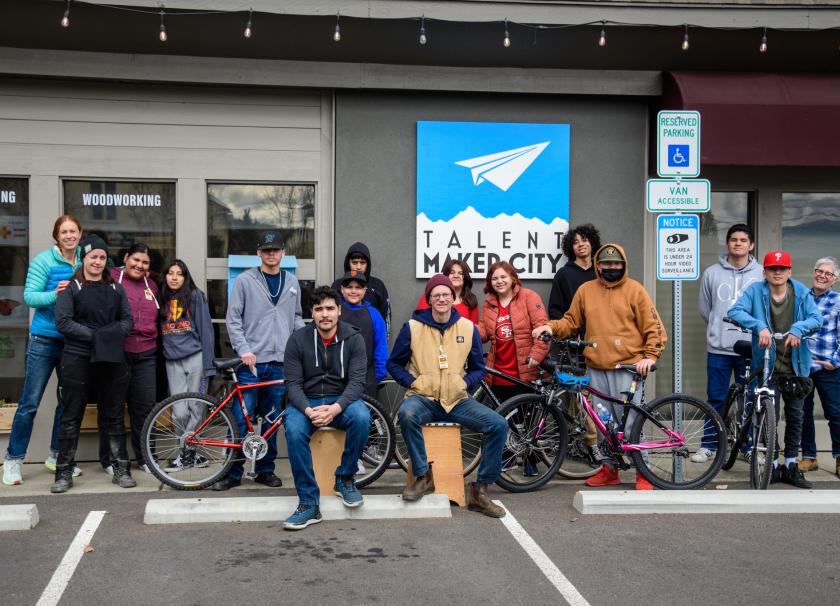
May 2023 Change for Good Partner: Talent Maker City
Talent Maker City's mission is to build a more connected, prosperous, and resilient community through hands-on creativity and innovative STEAM-based learning. (STEAM = Science, Technology, Engineering, Art, & Math.) They have a bustling Makerspace facility, brimming with creative energy in downtown Talent offering hands-on STEAM-based workshops and programming for curious minds of all ages!

Celebrating Cinco de Mayo
We're always learning and growing here at the Co-op and with the approach of Cinco de Mayo we thought we would share a (very) brief history lesson and some thoughts on celebrating this holiday here in the United States.
April 2023 Change for Good Partner: Pollinator Project Rogue Valley
From Kristina Lefever, Pollinator Project Rogue Valley President
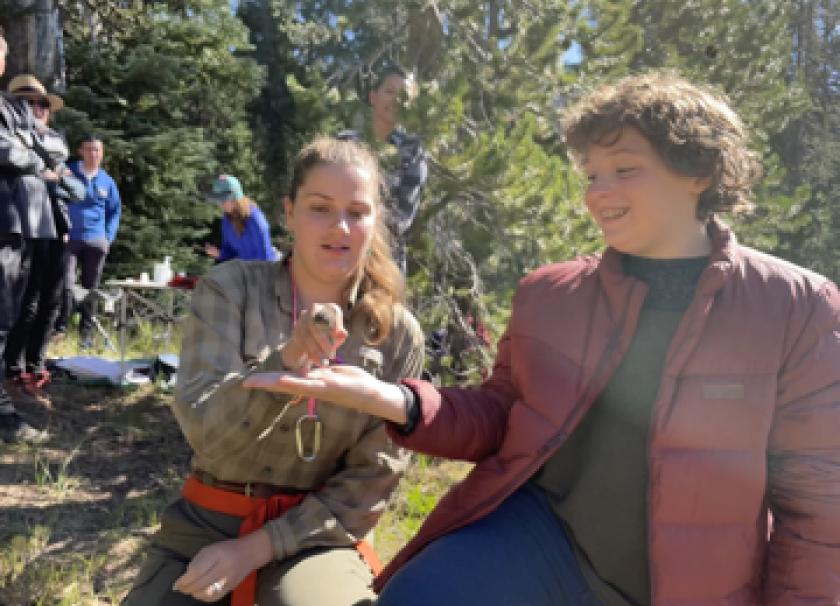
March 2023 Change for Good: Klamath Bird Observatory
From Klamath Bird Observatory, March 2023's Change for Good partner:

Frederick Douglass And Co-ops in 1846
When Douglass Came to Rochdale, England a Slave and Left a Free Man
By David J Thompson

February's Change for Good partner: OHRA

OHRA helps low-income people build better lives through access to social service resources. By helping
people move from crisis to stability, OHRA builds more capable individuals, stronger families, and a
better community. We have three core programs:
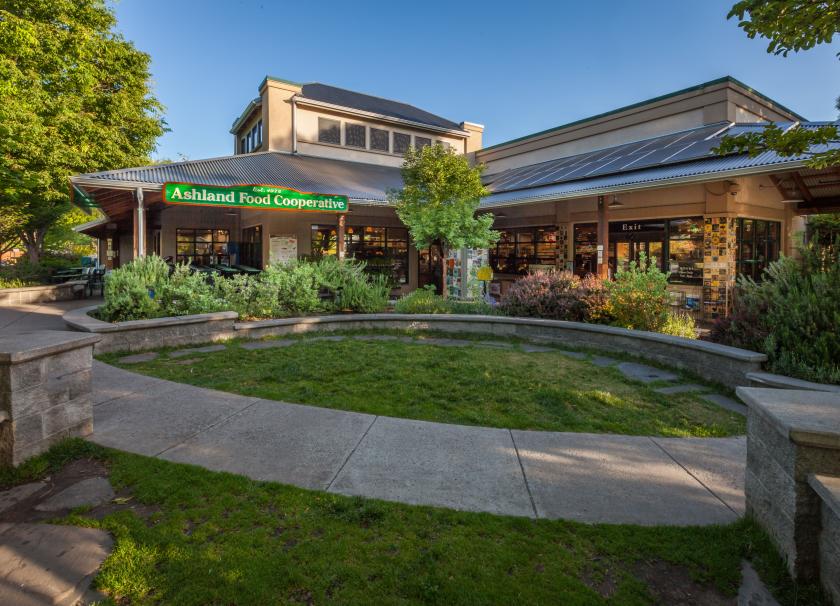
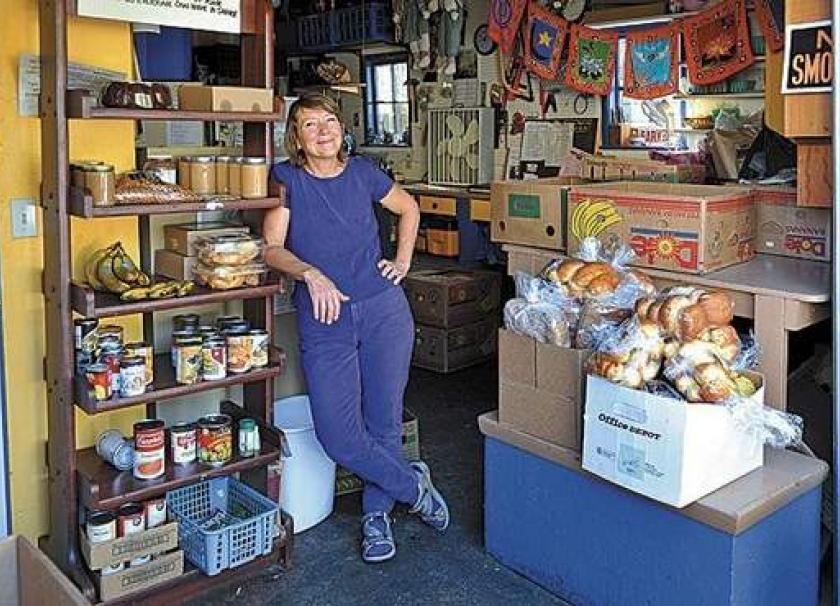
January Change for Good Partner: Ashland Food Angels
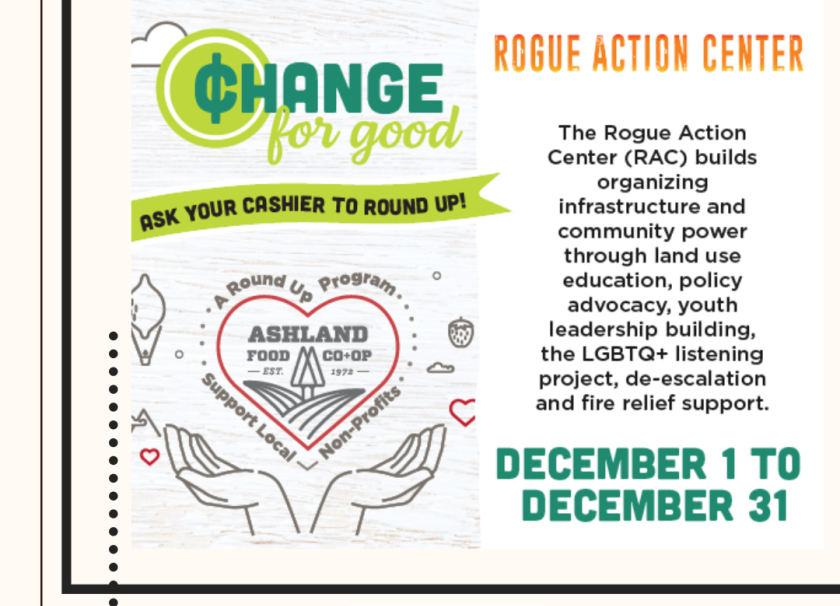
December Change for Good Partner: Rogue Action Center
December's Change for Good Partner is
Rogue Action Center
%20(1).png)
The Rogue Action Center (RAC) builds organizing infrastructure, leaders, and community power for a just, inclusive, and sustainable Southern Oregon for everyone.
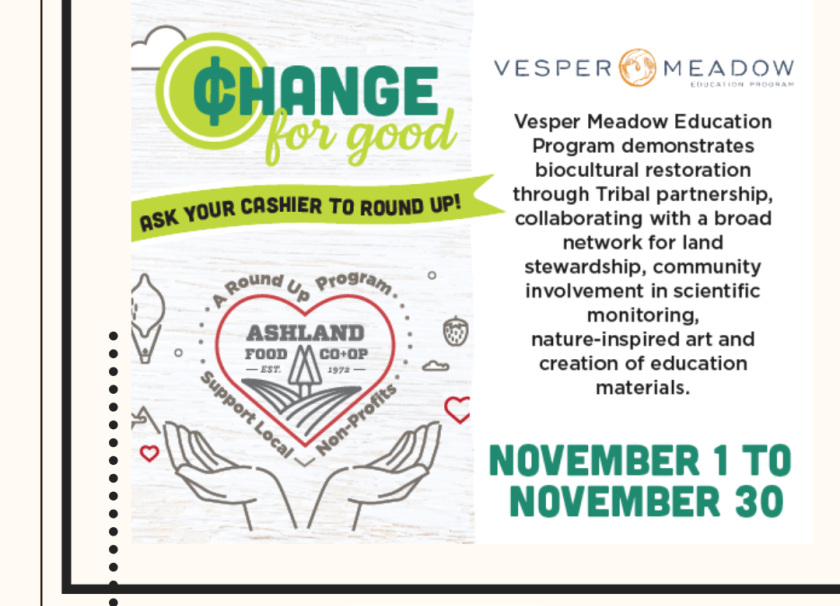
November Change for Good Partner: Vesper Meadow Education Program
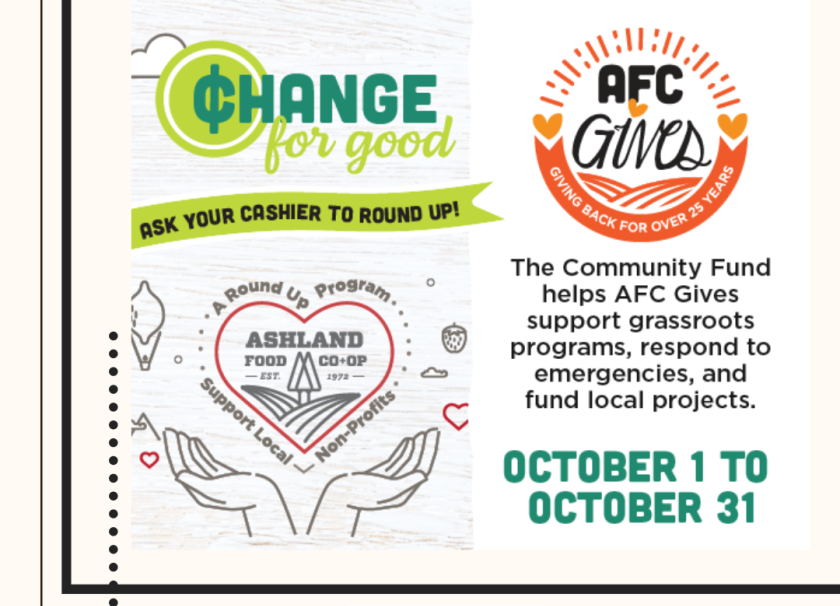
October Change for Good Partner: AFC Gives Community Fund
October's Change for Good Partner is
AFC Gives Community Fund


September Change for Good Partner: Truth to Power
September's Change for Good Partner is
Truth to Power
.png)
Truth to Power cultivates teen activism and community participation through social justice podcasts and transformative projects.

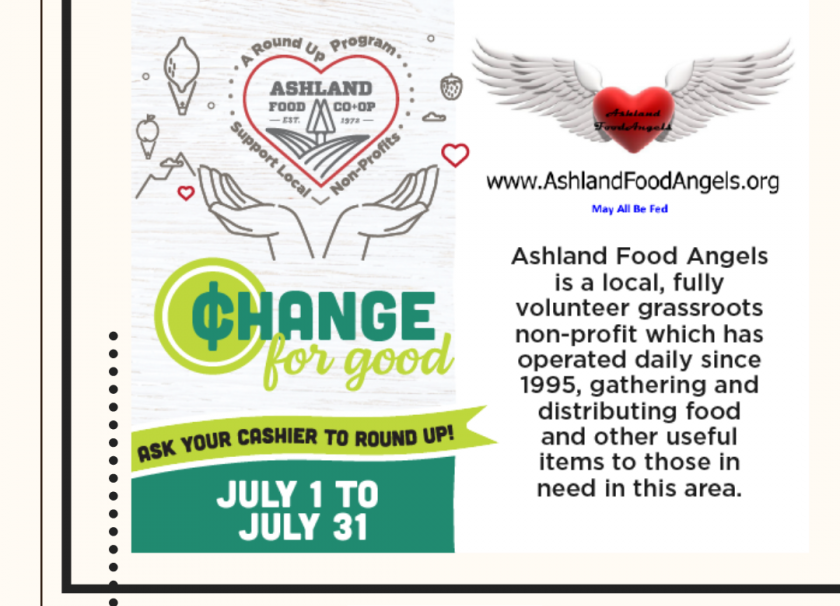


.png)
